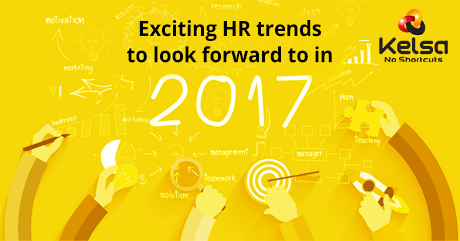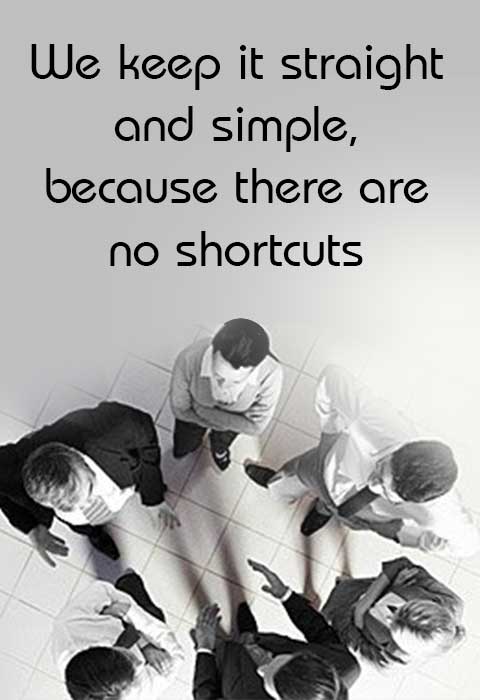Exciting HR trends to look forward to in 2017

2017 is set to be an interesting year for HR leaders, and they will look to increasingly innovate, think across the lines and connect ideas, to engage better with employees, foster diversity and structure rewarding work environments.
They will be driven by the demands of a workforce that are multi-generational, raring to go and curious to learn through diverse opportunities at work, and focused on partnering with robust work environments that offer strong corporate cultures. In addition, business will continue to drive the demands for cost-effectiveness, increased analytics and adoption of digital technologies to ensure competitiveness and agility.
As HR professionals lace up their strategic plans and initiatives for the year, we look at some key trends and areas of focus where they will drive value:
Predictive Analytics will take a central role
As businesses continue their emphasis on building customer connect, market competitiveness and agility, they will expect HR to play a greater role in driving increased partnership and improve delivery within the organisation. HR leaders will increasingly rely on predictive analytics tools to meet these goals, and find newer ways to apply them to access knowledge, optimise measures and deliver outcomes. Particularly, predictive analytics tools will be adopted to vastly improve the efficacy of hiring processes, drive down attrition rates, increase business alignment and optimise organisation structures.
Engage with growth-driven talent
As businesses expand into the digital terrain, they will increasingly drive the mandate to attract and engage growth-driven workers. HR leaders will draw up programmes to reach out and engage with talent from across diverse industries and work backgrounds to bring on board quality resources.
And while staying focused on connecting with a growth-driven talent they will also look at building cost-effective measures to build talent pipelines that readily cater to business needs.
Increased relationship with the millennials
The millennials are a hungry people, and deeply value opportunities to learn and contribute through their work, as against taking home a fat pay cheque. At a broad level, these changing workforce values will mean young talent are now looking to engage with organisations that reflect their core work values and also offer diverse learning ecosystems.
HR business partners will keep busy creating stimulating work environments for them – which would include building and delivering the right corporate focus, enabling opportunities for them with the right mentors and connecting them with a diverse range of projects. Also, recruiters will reach out to top talent through strategies that go beyond high ticket perks, and instead attract them with opportunities for effective mentoring and collaboration within the organisation.
Greater access to technology
While sophisticated technology tools were previously accessible only to large corporations with big budgets, HR software and technology based solutions are now becoming increasingly affordable to smaller organisations. Social media tools and smart apps are democratising the HR technology landscape, enabling even the small and mid-range players with modest budgets to reach out to top quality talent, initiate early conversations and expand their employer brand presence.
Additionally online and mobile phone apps also allow them access to tools that generate effective human capital solutions and drive quality approaches to attract and engage talent, drive information for key employee decisions, achieve greater employee connect and design meaningful initiatives.
Coaching will trump performance
Performance-driven cultures will give way to coaching cultures that allow opportunities for frequent employee-initiated reviews, regular feedback and skill development. Organisations will move away from traditional appraisal systems, and adopt a strong development focus to provide employees with greater opportunities to develop their skills through self-coaching and stretch assignments at work.
Diversity goals will move forward
Businesses will find compelling reasons to push for workforce diversity as they begin to experience the benefits in bringing together employees from across different age groups, gender, work and cultural backgrounds. Additionally, they will foster collaborative efforts that draw upon the skills and insights of a diverse multi-generational workforce to ensure quality outcomes.
With the increased emphasis on diversity, we can expect the workforce within most organisations to grow increasingly mobile and open to new work experiences. HR leaders will need to build their diversity objectives by taking on a more nuanced approach that effectively recognises the goals and values of varied employee groups and implement measures that are meaningful and relevant to them.
Redefine workspaces to enhance performance
The collaborative nature of work in recent years has driven a strong case for adopting open plan workspaces within many organisations. These workspaces are very effective in fostering collaboration and dialogue among employees, yet they have compromised privacy for some.
HR managers will now aid workspace settings that offer optimal environments for collaboration as well as solitude when needed. These will ensure teams can benefit from the ease of communication and transparency within open-plan work settings, and also retreat to quiet islands of solitude and focus when needed. In addition to the layout of the physical workplace, workspace settings will also evolve through access to improved IT infrastructure and cloud-based solutions, making it easier for employees to connect to their workspace from their homes and pop-up workplaces.
Exciting HR trends to look forward to in 2017

2017 is set to be an interesting year for HR leaders, and they will look to increasingly innovate, think across the lines and connect ideas, to engage better with employees, foster diversity and structure rewarding work environments.
They will be driven by the demands of a workforce that are multi-generational, raring to go and curious to learn through diverse opportunities at work, and focused on partnering with robust work environments that offer strong corporate cultures. In addition, business will continue to drive the demands for cost-effectiveness, increased analytics and adoption of digital technologies to ensure competitiveness and agility.
As HR professionals lace up their strategic plans and initiatives for the year, we look at some key trends and areas of focus where they will drive value:
Predictive Analytics will take a central role
As businesses continue their emphasis on building customer connect, market competitiveness and agility, they will expect HR to play a greater role in driving increased partnership and improve delivery within the organisation. HR leaders will increasingly rely on predictive analytics tools to meet these goals, and find newer ways to apply them to access knowledge, optimise measures and deliver outcomes. Particularly, predictive analytics tools will be adopted to vastly improve the efficacy of hiring processes, drive down attrition rates, increase business alignment and optimise organisation structures.
Engage with growth-driven talent
As businesses expand into the digital terrain, they will increasingly drive the mandate to attract and engage growth-driven workers. HR leaders will draw up programmes to reach out and engage with talent from across diverse industries and work backgrounds to bring on board quality resources.
And while staying focused on connecting with a growth-driven talent they will also look at building cost-effective measures to build talent pipelines that readily cater to business needs.
Increased relationship with the millennials
The millennials are a hungry people, and deeply value opportunities to learn and contribute through their work, as against taking home a fat pay cheque. At a broad level, these changing workforce values will mean young talent are now looking to engage with organisations that reflect their core work values and also offer diverse learning ecosystems.
HR business partners will keep busy creating stimulating work environments for them – which would include building and delivering the right corporate focus, enabling opportunities for them with the right mentors and connecting them with a diverse range of projects. Also, recruiters will reach out to top talent through strategies that go beyond high ticket perks, and instead attract them with opportunities for effective mentoring and collaboration within the organisation.
Greater access to technology
While sophisticated technology tools were previously accessible only to large corporations with big budgets, HR software and technology based solutions are now becoming increasingly affordable to smaller organisations. Social media tools and smart apps are democratising the HR technology landscape, enabling even the small and mid-range players with modest budgets to reach out to top quality talent, initiate early conversations and expand their employer brand presence.
Additionally online and mobile phone apps also allow them access to tools that generate effective human capital solutions and drive quality approaches to attract and engage talent, drive information for key employee decisions, achieve greater employee connect and design meaningful initiatives.
Coaching will trump performance
Performance-driven cultures will give way to coaching cultures that allow opportunities for frequent employee-initiated reviews, regular feedback and skill development. Organisations will move away from traditional appraisal systems, and adopt a strong development focus to provide employees with greater opportunities to develop their skills through self-coaching and stretch assignments at work.
Diversity goals will move forward
Businesses will find compelling reasons to push for workforce diversity as they begin to experience the benefits in bringing together employees from across different age groups, gender, work and cultural backgrounds. Additionally, they will foster collaborative efforts that draw upon the skills and insights of a diverse multi-generational workforce to ensure quality outcomes.
With the increased emphasis on diversity, we can expect the workforce within most organisations to grow increasingly mobile and open to new work experiences. HR leaders will need to build their diversity objectives by taking on a more nuanced approach that effectively recognises the goals and values of varied employee groups and implement measures that are meaningful and relevant to them.
Redefine workspaces to enhance performance
The collaborative nature of work in recent years has driven a strong case for adopting open plan workspaces within many organisations. These workspaces are very effective in fostering collaboration and dialogue among employees, yet they have compromised privacy for some.
HR managers will now aid workspace settings that offer optimal environments for collaboration as well as solitude when needed. These will ensure teams can benefit from the ease of communication and transparency within open-plan work settings, and also retreat to quiet islands of solitude and focus when needed. In addition to the layout of the physical workplace, workspace settings will also evolve through access to improved IT infrastructure and cloud-based solutions, making it easier for employees to connect to their workspace from their homes and pop-up workplaces.




